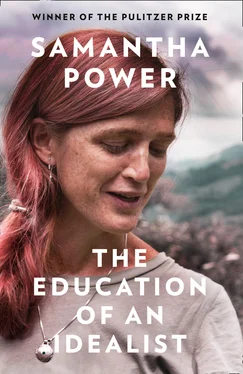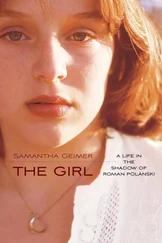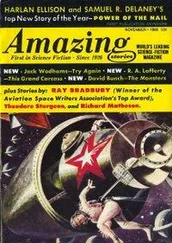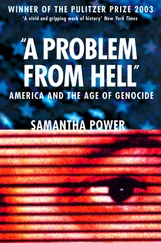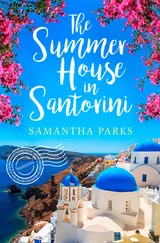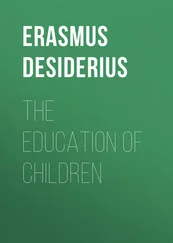From around the time I was five years old, I viewed Hartigan’s as a kind of oasis. Without a fuss, I would make my way down a half-flight of stairs from the main pub room and take a seat at a seldom-used bar that mirrored the busy one upstairs. My dad would bring me a bottle of 7 Up—if Stephen was with me, he would get a Coke—and I would contentedly dig into whatever mystery I was reading. I never went far without an Enid Blyton (“The Famous Five” or “The Secret Seven” series), Nancy Drew, or Hardy Boys book under my arm.
Over the course of the many hours I spent in Hartigan’s basement, I disappeared on far-off adventures with intrepid child detectives, combating thieves and kidnappers. On the weekend, when I finished a book I had brought to the pub, I would march upstairs, and my dad would dash to the car to retrieve my coloring books and markers for the next phase of the afternoon. When my dad’s friends brought their children, we would play board games or make up our own entertainment while our fathers laid down sports predictions in the room above.
When I was on my own, I made small talk with the pub guests who ventured downstairs to put change in the cigarette machine or to use the bathroom. Sometimes, I would stand outside the “Gents” toilet, singing songs. I told Stephen that I offered these performances so that my musical talents (which I had yet to realize were lacking) would be “discovered,” but I was probably just pining for attention. For a while, the pub maintained a slot machine downstairs, which I enjoyed because it drew occasional pub patrons. On slow days, I often stood next to the machine’s display screen for the extra reading light.
Hartigan’s was not clean; the downstairs, where I read, played, and sang, had a smell that mingled urine, chlorine disinfectant, and the swirl of barley, malt, and hops. I couldn’t have liked these smells, or playing near a pub’s toilets, but I never complained. Years later, when I mentioned to an Irish diplomat that Hartigan’s had been a big part of my childhood, he claimed that once, while drinking there, he had approached the bathroom door and spotted what he thought was a sack lying across the threshold. “I went to step inside,” he told me, “and then suddenly, to my horror, the sack moved. It was a person!”
I froze, thinking for a second—absurdly—that it might have been me, before he revealed that it was, in fact, a small man who had passed out. I have my doubts that this story is true, but it speaks to the way many who visited Hartigan’s thought about the place I called my second home as a young girl.
Although I must have occasionally experienced boredom or loneliness down in the basement, when I think of that time, I only remember my father, the first man I loved, loving me back. While many Hartigan’s regulars seemed to leave thoughts of their families behind when they entered the cocoon of the pub, my father brought me with him. I was his sidekick. I could find him any time I needed him, with a long row of drained pint glasses beside him. Instead of shaking me off when I bounded up the stairs, he often picked me up and sat me down beside him. I grew preternaturally comfortable chatting with adults and people of different backgrounds, particularly about sports.
While my dad must have been well above the legal limit when he drove us home, he seemed in complete command of our little universe. On school nights when he came home late from the pub, even if it was after midnight, he would come to my room and wake me up. Often, he just wanted to chat about my day, but sometimes he would take Stephen and me for a drive around the neighborhood in his white Mazda—the backseat of which was covered with sheaves of discolored piano sheet music, broken golf tees, loose change, greasy wrappers from the local fish and chips shop, and months-old newspapers.
Hartigan’s was such a vital part of our family routine that when my aunt bought me an elegant blue raincoat and observed, “This will look lovely on you when you go to Mass on Sunday,” I responded, “No—it will look lovely on me when I go to the pub with Dad on Sunday.”
MY PARENTS LOVED LIFE and learning, they loved sports, and they loved me. They just found loving each other a struggle.
I craved harmony between them. On one family vacation, I interrupted lunch to present them with a fifty-pence piece I had been saving. “Whichever of you doesn’t argue with the other will get this,” I declared. “I will be watching, keeping careful track.” But my early efforts at diplomacy did not succeed. Although my mother had fallen for my dad watching him play piano in the pubs of London, she didn’t hide her disapproval of his drinking or his embrace of leisure time. But when she complained that Hartigan’s was no place for kids, my father countered that if she was so committed to our well-being, she should find a way to work less and be home more.
He started to nag and even taunt her. “Where have you been?” he would say when she came home late, physically poking her with his index finger.
“None of your business,” she would answer, before shutting herself in a room where he couldn’t disturb her studies.
One evening, when he found her at the kitchen table reviewing for an exam, he swept her medical notes and books into his arms, and, though it was pouring rain, marched into the back garden and threw them into a walled-up boiler pit where she would be unable to retrieve them.
Sober, perhaps, my dad might have pulled back from a confrontation, but having packed away a dozen pints, he would raise his voice at her, and she would give as good as she got. Lying in my twin bed above the living room, I would listen as the arguments grew nastier and as plates from the kitchen were hurled. When I got out of bed to spy from the landing atop the stairs, I would alternate between straining to decide who was at fault and blocking my ears with my hands so I could make out nothing but the sound of my heart pounding—a sound so deafening I was sure my parents could hear it below.
Sometimes, I would get down on my knees beside my bed, make a hasty sign of the cross, and then try to drown out the noise by saying as many Hail Marys and Our Fathers as it took for the din to subside.
WHEN I WAS SEVEN, Mum left Ireland for a year to help set up the first kidney transplant and dialysis unit in Kuwait, leaving Stephen and me in the care of our dad and wonderful housekeeper and live-in nanny, Eilish Hartnett. While a year was a long time to be separated, during the summer, Mum brought my brother and me to Kuwait for a six-week visit.
There, Stephen and I experienced heat of a kind that was literally unimaginable for two Dublin kids. We wore miniature dishdashas, which kept us as cool as possible, and lathered ourselves in sunscreen before spending long hours on the beach, swimming alongside Bedouin and Kuwaiti boys—but no local girls. I was fascinated by the minarets that dotted the horizon and the mixed dress of women—some in Western clothes, others in abayas or hijabs. Alcohol was illegal, but the Irish expatriates circumvented the rules at their parties. Although my mother was never a big drinker, she liked to join in, and even contributed beer that she home-brewed in a green plastic barrel using a kit she had brought from Dublin.
The deepest impression of our stay was made less by the sights and sounds of Kuwait than by the man with whom Mum had become romantically involved: an Irishman with a wide mustache and thick, prematurely graying hair. Dr. Edmund Bourke, or “Eddie,” was a pioneer in the science and practice of nephrology (the branch of medicine that deals with kidneys), and had been Mum’s supervisor at the Meath Hospital in Dublin during her medical residency. Although Eddie had a wife and four children of his own back in Dublin, he and my mother were now living together in a high-rise apartment, acting as if they were married.
Читать дальше
